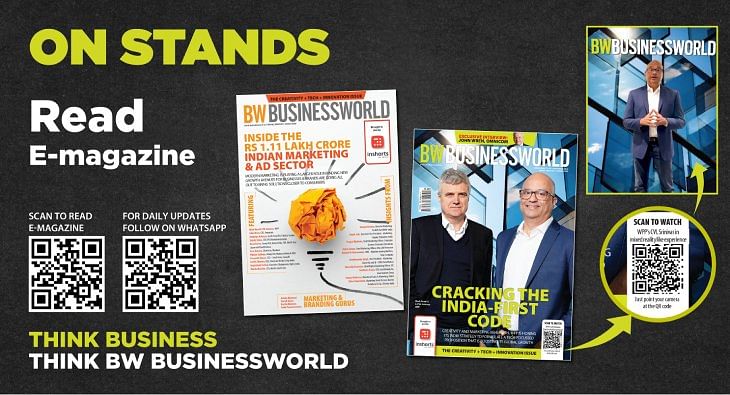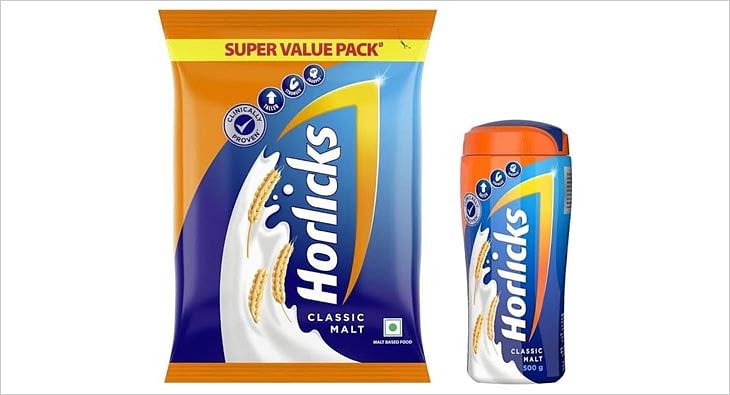TNS aims to be the leader in custom market research in India: Pedro Ros, CEO, TNS
Following its inclusion in October 2008 in The Kantar Group, WPP’s information, insight and consultancy division, TNS, the world’s largest custom market research specialist, has been growing from strength to strength. In an exclusive conversation with exchange4media, Pedro Ros, CEO, TNS, highlighted the five areas that is agency is focusing on to spur further growth.

Following its inclusion into The Kantar Group in October 2008, WPP’s information, insight and consultancy division, TNS, the world’s largest custom market research specialist, has been growing from strength to strength. In an exclusive conversation with exchange4media, Pedro Ros, CEO, TNS, highlighted the five areas that is agency is focusing on to spur further growth.
Giving a background of TNS’ acquisition by WPP, Ros explained, “When TNS became a part of Kantar, it was reorganized. The media branch of TNS was added to Kantar Media and is now rebranded as Kantar Media, the consumer panels were rebranded as Kantar World Panel, while the healthcare business was merged with Kantar as Kantar Health. So, what we ended up with as TNS was then merged with Research International and is basically a custom business, based on five big sectors – consumer, technology, financial services, political, social and automotive sectors.”
Citing the benefits of belonging to the WPP Group, Ros said, “The benefit of being part of WPP is that we can create different kinds of relationships with different WPP companies, which are usually win-win relationships. We are doing that with Kantar Companies like Kantar Media, where we work with companies like Compete or Symphony. At the WPP level, we work with companies like Hill & Knowlton in areas like corporate reputation, where we do the research and the analysis about the situation of a company, but then we link with Hill & Knowlton on the actions that need to be taken in order to address the issues that a company may have on their positioning and their reputation as a corporation. So, I think the scope of new opportunities now is much higher as you know WPP has 200+ companies.”
On his India plans, Ros said, “Our plans are to become the leader in custom market research in India and provide advice in the above-mentioned five sectors. We are the leader worldwide – either the No. 1 or No. 2 player. In India, we have a very strong automotive sector, a strong consumer sector, strong technology sector and we are growing in financial services, but we can still do more. Also, we are taking off very well in the political and social sectors, where we are leaders in France, Germany, UK, Spain and Sweden. We feel that we can do more and we have started this year very strong in this sector. I think, based on our expertise in the region and also globally, we can achieve that objective.”
He concluded by saying that TNS was now concentrating on other areas as well – from a market research company to a trusted advisor, to provide clients not just data, but advice and consultation on their brands, the retail strategies that they had, actions regarding how to address satisfaction issues with the customers and also help them innovate.
Read more news about Marketing News, Advertising News, PR and Corporate Communication News, Digital News, People Movement News
For more updates, be socially connected with us onInstagram, LinkedIn, Twitter, Facebook Youtube, Whatsapp & Google News
About 60% Instagram influencers in India have fake followers: Report
As per a media report, influencer marketing platform KlugKlug has found that only 2.48 million profiles out of the 8 million have ‘high-quality’ followers
Two of three Instagram influencers in India have more than 60 per cent fake followers, a report by influencer marketing platform KlugKlug shows.
This is particularly true for the beauty and fashion sector, the report noted.
Other countries that have influencers with fake followers are Brazil, the UAE and Indonesia.
As per media reports, such Instagram fake followers can be roped in for as little as Rs 10 to a high of Rs 1,000.
According to Klug Klug India, only 2.48 million profiles out of the 8 million have high-quality followers.
A number of other categories have also been buying fake followers, media reports have noted.
As per a media expert, quoted in the reports, brands are finding it difficult to identify and curb the menace of fake followers and bots.
In a recent setback for influencers the Central Consumer Protection Authority (CCPA) has said those promoting activities like gambling and betting are equally liable as the companies promoting the same.
15% consumers enhance their user experience through virtual assistants: Kantar report
According to Soumya Mohanty, Managing Director & Chief Client Officer- South Asia, Insights Division, Kantar, less than 1% of ads get tested due to lack of time
Marketing data and analytics firm Kantar has unveiled a report that studies the burgeoning AI market to dish out actionable insights for marketers. Within AI, virtual assistants are the fastest growing segment. The report noted that 15% consumers enhanced their ‘user experience through virtual assistants’. This segment is the fastest growing at 27% YoY.
According to the study, while ‘fitness’ and ‘social media’ apps are amongst the leading categories, driving AI adoption (with an average of 2.3 AI led features embedded in these applications), segments like ‘BFSI’, ‘job search’ and ‘short video’ apps are relatively slow in AI adoption, with an average of 1.2 features each. Entertainment apps, digital commerce and pharmacy apps stand somewhere in the middle with 2.0 & 1.8 AI features being adopted, respectively.
Additionally, the report said that while 90% of marketing and sales leaders think their organisations should be using AI “often”, 60% said their organisations “rarely or never” do. Speaking to exchange4media, Soumya Mohanty, Managing Director & Chief Client Officer- South Asia, Insights Division, Kantar highlighted that currently there are a lot of organisations who know that there is something called AI, but haven’t yet figured out how it could help them holistically.
“A lot of the AI just gets used for efficiency purposes, so repetitive tasks get automated,” Mohanty pointed out. Data also plays a big role in why certain organisations are struggling with how to use AI.
For instance, Mohanty explained that in segments like D2C, telecom etc. there is a lot of primary or first-party data. So being able to leverage AI also gets easier. “It's the traditional large sort of FMCG type companies where data sits in silos. You don't really have one single source of data where it's a little difficult to use the full power of AI, because the full power of AI also needs a lot of data sitting in a structure that you can use,” she added.
So, can AI help marketers have a unified view of data? No, says Mohanty. “AI does not help marketers get a unified view of data. Once you have data in a unified way, AI can help you do a lot more with that data.”
According to her, organisations today need to have good, strong data warehousing. “It needs to make sense because a lot of the silos are also because everybody owns one part of it. A lot of people have their own analytics teams internally, so there are a lot of agendas and stakeholders. And then we say data is in silos because fundamentally, when you're doing something internally, different people have different stakes in it,” Mohanty added.
Puneet Avasthi, Senior Executive Director, South Asia, Insights Division, Kantar shared that most organisations are now heavily investing in creating first-party data sets. “Companies that have first party data about their consumers and transactions or interactions that they have with the brand are going to be able to leverage that more effectively to create sharper profiles for the brand as such for the consumer and build relevant recommendations at the right moments.
Panning out she also highlighted how AI can be leveraged to enhance market research and make it more accessible, a part of which Kantar is itself involved in. “A lot of times people say that we can't test an ad because we don't have time. So less than 1% of advertising gets tested and just gets put out. Does it work when it gets put out? It is the question the audience should answer, because so many times, it backfires,” Mohanty shared. Apparently, digital particularly doesn't get tested because organisations just do a/b testing and leave it at that.
Speaking of preferred use cases of AI, Avasthi added that various businesses and brands are looking at creating an experience for the brand that is in line with the brand's architecture and progress across all touch points. “That is something that the AI engines that are working behind can ensure, that all such interactions are consistently delivered across different virtual assistants or chatbots that are available to the consumer,” he said.
The other use case, according to Avasthi, is ensuring that there is greater visibility for the brand in the digital sphere as such, through various recommendation engines, when a certain need is being looked for and to throw up the right kind of information about the brand so that the brand message is amplified in the mind of the consumers.
Among other insights from the Kantar AI report is that 88% consumers used AI based algorithms which analysed their preferences, behaviours, and interests to create personalised recommendations for tailored experiences. This segment grew at 6 % YoY. At 21%, ‘smart home automation’ is a smaller segment but growing at 25% YoY.












 Share
Share
